Interview with Herbert Sigüenza
Writing from a perspective informed by a bi-cultural comedic education, Herbert Sigüenza is a founding member of the Chicano comedy troupe Culture Clash and an independent playwright. His work has been produced in San Diego, Los Angeles, San Francisco, Denver, and Houston; his body of work includes both original and adaptations, such as A Weekend with Pablo Picasso, Steal Heaven, and El Henry, a futuristic Chicano adaptation of Shakespeare's Henry IV.
Sigüenza is beginning his three-year tenure as a Mellon Foundation playwright-in-residence at the San Diego Repertory Theatre. His partnership with the REP began in 1996 with Culture Clash’s Radio Mambo and has continued through In the Time of the Butterflies, his founding of Amigos del REP, and New Generations Mentorship Program through the Theatre Communication Group.
The latest collaboration between Sigüenza and the REP is Manifest Destinitis, a contemporary adaptation of Molière’s The Imaginary Invalid set in the early California Rancho Era. The play was produced as part of the theatre’s 2016-2017 season. In Sigüenza’s adaptation, Don Argon is a wealthy Californio ranchero, the last of the Spanish-born elites holding onto the old way. He is plagued by an endless list of psychosomatic ailments and maladies including his most recent: “Manifest Destinitis” (the fear of losing one’s homeland, language, and culture). Between the end of the Mexican-American War and signing the Treaty of Guadalupe-Hidalgo, this disease is spreading across wealthy Californios just as American immigrants are spreading across the continent. Don Aragon struggles with his health as his daughters seek new lives in this new world and his wife Belen seeks to take his wealth for herself.
As the production dramaturg for Manifest Destinitis I sat down with Herbert in rehearsals to talk about Manifest Destinits, adaptation, and political Latinx theatre.
I feel that the language of the classics is difficult to comprehend, and it even isolates some audiences from accessing the story. If an audience cannot understand the language, they cannot grasp the story and they become isolated from that history, from that moment in culture.
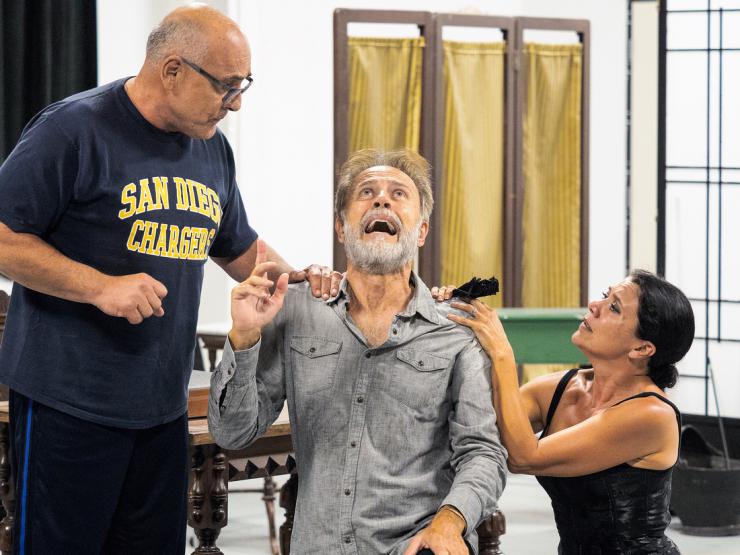
Maria Patrice Amon: This is your second adaptation project with the REP. What inspires you to go back to the canon?
Herbert Sigüenza: I adapt because I think that it is important to take classics and make them accessible to a modern contemporary audience. I love the classics because of their strong structures—their bones if you will. But quite frankly, I feel that the language of the classics is difficult to comprehend, and it even isolates some audiences from accessing the story. If an audience cannot understand the language, they cannot grasp the story and they become isolated from that history, from that moment in culture.
I feel that in order to understand the classics and Shakespeare, you have to need to be somewhat educated and well-read. Personally, I don’t have that background and education. I'm not a traditional, academically-trained theatre artist. I missed a lot of classes like Classics 101, or Intro the Shakespeare. I think that I’m not alone in that, most Americans don’t have those skills either.
The Classics produced in America have become elitist because the language is challenging, and ultimately segregates classes of people. If you go to any regional theatre producing Shakespeare here in the States, you will see an educated, upper-middle class white audience. So, my adaptations are my attempt to democratize the classics for everyone.
I had tremendous success with my previous adaptation El Henry. Audience members would come up to me after performance and thank me because they had never understood Shakespeare’s Henry cycles. Contemporizing the language and cultural world the story inhabits made the story clear for people to follow. Contemporizing doesn't mean a dumbing down of the classics. Bringing them into our contemporary language isn’t reductive. I think that it elevates the work because it makes them accessible to more people; then, conversations happening around the works are fuller and better.
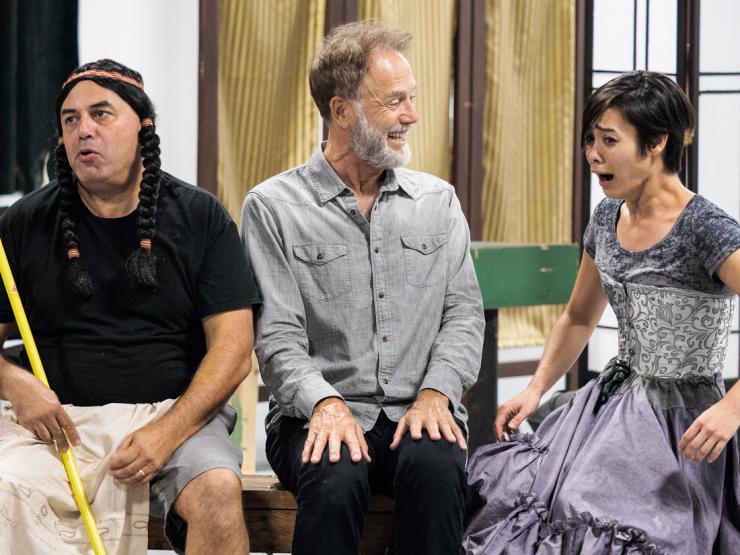
When I adapt, I use multiple languages; I write text that is English, Spanish, and Spanglish. I love the energy generated by language shifts. It is important to me that characters speak in a way that feels authentic because it is what keeps the play from feeling like a museum piece. —Herbert Sigüenza
Patrice: Your focus on language is interesting; would you describe your work as adaptation, or translation?
Herbert: In Manifest Destinitis, I am largely adapting, translation is much more faithful to the word. I take the bones and structure of Molière’s play, but then I give it fresh blood, new muscles, and even a new heart so it can come alive again.
Patrice: By recontextualizing classics to a Latinx community, you are playing with multiple lenses of identity expression. How does the plurality of languages in the Latinx community play into your work?
Herbert: When I adapt, I use multiple languages; I write text that is English, Spanish, and Spanglish. I love the energy generated by language shifts. It is important to me that characters speak in a way that feels authentic because it is what keeps the play from feeling like a museum piece. I especially love using Chicano slang, or caló, and the poetic music of the language patterns. I always try to keep a bit of caló and code-switching in my plays where it makes sense.
Patrice: Manifest Destinitis seems to reflect a broad range of influences in addition to Moliere. What are some of the other influences behind this play?
Herbert: My comic training started young. When I was growing up in El Salvador, there were still traveling circuses and they had a profound impact on my creativity. These carpas were very low-rent circuses with simple three-piece bands, and an odd collection of performers. They would advertise erotic dancers, but it would turn out to be just one lady well-past her youth still shaking her hips while everyone would be going wild. Then they would have a little clown as the emcee, but everything he said was just so filthy. And this would just be the start of the show.
This project is a combination of Molière and my comic influences, both theatrical and non-theatrical such as vaudeville, carpa, commedia dell’arte, Monty Python, the San Francisco Mime Troupe, El Teatro Campesino, and Culture Clash. In fact, after writing Manifest Destinitis, I realized that it reminded me of Bandido, an early play of El Teatro Campesino, because of the setting and the comedic irreverence of Young Frankenstein by Mel Brooks.
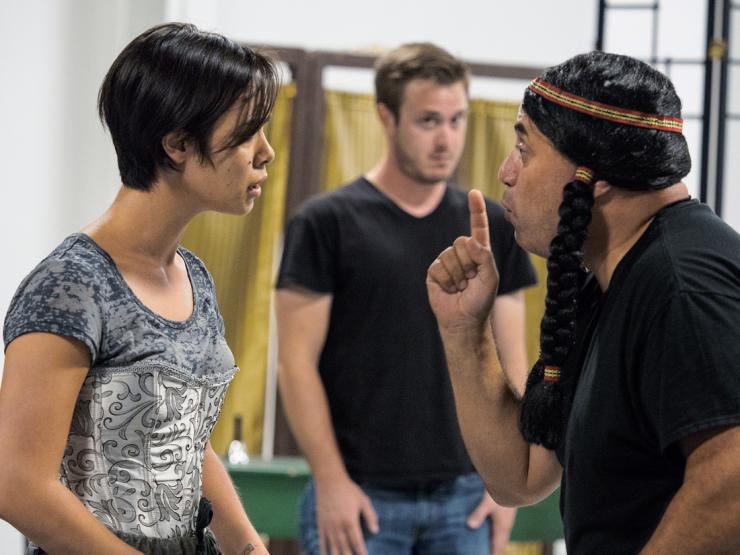
Patrice: Molière’s The Imaginary Invalid, on which your adaption is based, is not an overly political play. Why did you choose to adapt a play that was not originally making a strong attack?
Herbert: Actually I had first thought that I was going to adapt Molière’s Tartuffe because I love what I could do with the character’s hypocrisy. Dramaturg Shirley Fishman suggested I take a look at Richard Wilbur’s translation of The Imaginary Invalid, and the project made much more sense. I liked how Aragon’s delusional diseases could become signs for an impeding social change.
Overall, I think that it is better to take a non-political play and make it political than to travel in the other direction. It fells so much more subversive to me. The original is only focused on society and medicine, but in Manifest Destinitis I kept that secondary so that I could put forward themes of colonialism, xenophobia, land-grabs, and ownership. I do not abandon the original themes, instead I made them work in service to the contemporary themes I wanted to discuss.
Much of what motivates me politically in this piece focuses on the signing of the Treaty of Guadalupe. Even though the moment is not recreated in the play, it looms large over everything. Our pueblo boy character runs on stage to shout that the treaty has been signed, and Mexico has lost vast territories, but the rest of the characters couldn’t care less. This moment is vital for me because it is essentially the genesis of the Chicano.
My first draft of Manifest Destinitis was done very fast, and was a close translation of Wilbur set in a new environment. When I showed it to Shirley, she gave me another great piece of advice: she told me to make it mine and try to say something new. From there, I reworked it and gave it a stronger political statement that comes naturally to me.
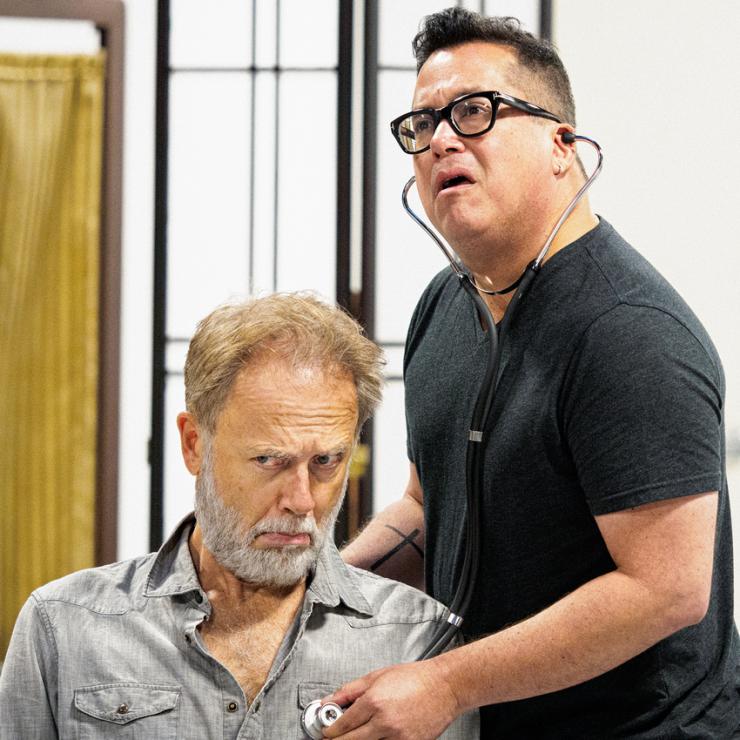
Patrice: The play ends with characters seeking a reconquista. Is this plot point motivated by the hostile climate created by our current political candidates?
Herbert: Yes! Immigration and the fear of a brown majority have motivated candidates to condemn immigrants. The idea of reconquista is a demographic reality. This land was once inhabited by a Latino majority, and now it is going to be so again just by sheer numbers of people. If that isn’t a reconquista, then I don’t know what is. We will buy California back piece by piece, but the question of who holds the power still remains. The answer to that question still scares some people. In Manifest Destinitis, Don Aragon has a nightmare about a mad orange man with small hands and straw hair ruling the country. I create plays like Manifest Destinitis to work against his nightmares becoming a reality.

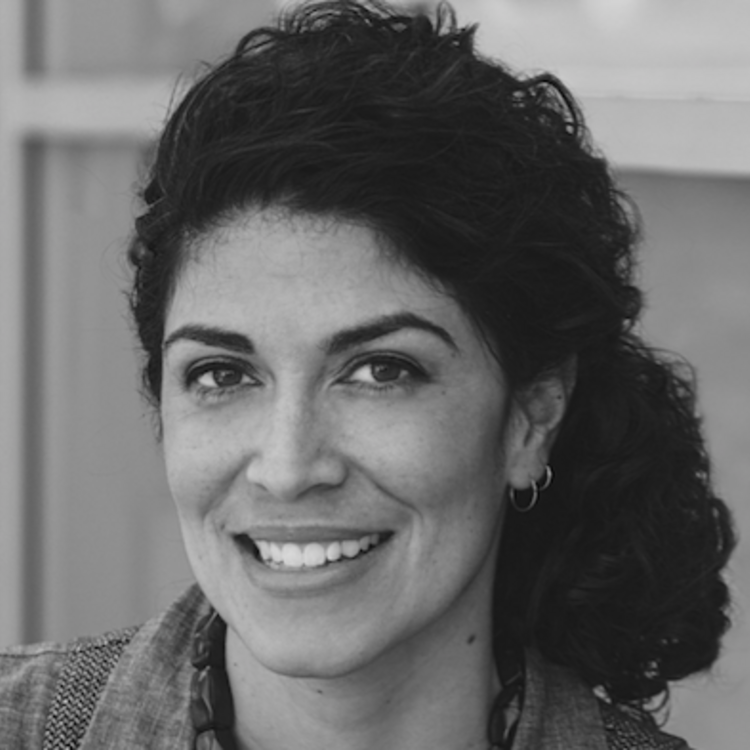

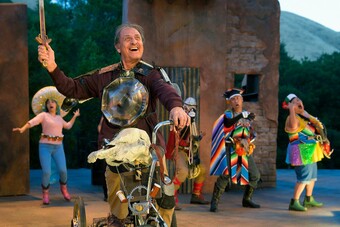







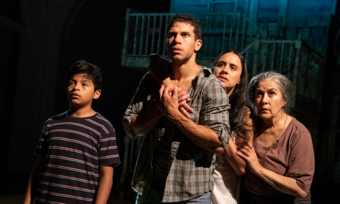


Comments
The article is just the start of the conversation—we want to know what you think about this subject, too! HowlRound is a space for knowledge-sharing, and we welcome spirited, thoughtful, and on-topic dialogue. Find our full comments policy here
Thanks Patrice! Good to hear Herbert talk about his process.